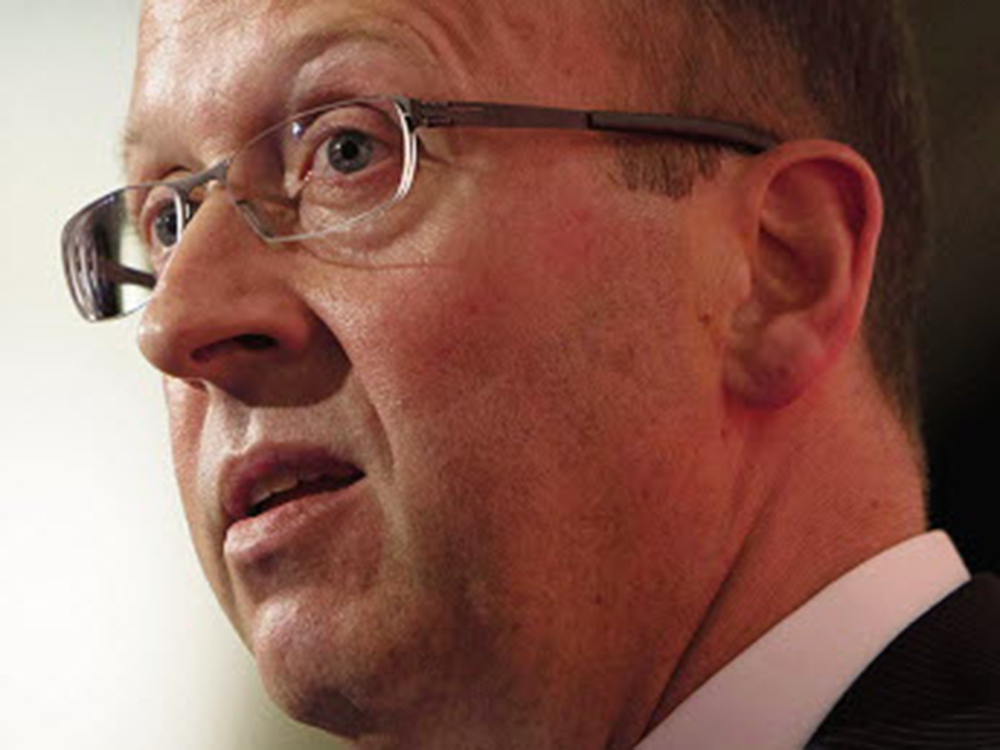66% said stocks are seeing a bear-market rally — signalling they expect them to return to new lows
Author of the article:
Bloomberg News
Sagarika Jaisinghani
Published Feb 14, 2023 • 2 minute read
Join the conversation
A person walks past a Bank of America Corp. sign in the Manhattan borough of New York City. Photo by Carlo Allegri/Reuters/File Photo Equity markets are on a relentless march higher amid optimism around stronger economic growth and cooling inflation, but most investors aren’t convinced the gains will last, according to Bank of America Corp.’s latest global fund manager survey.
Advertisement 2 This advertisement has not loaded yet, but your article continues below.
REGISTER TO UNLOCK MORE ARTICLES Create an account or sign in to continue with your reading experience.
Access articles from across Canada with one account Share your thoughts and join the conversation in the comments Enjoy additional articles per month Get email updates from your favourite authors About 66 per cent of participants in the bank’s February survey said stocks are seeing a bear-market rally — signalling they expect them to return to new lows. That’s even as the share of investors expecting a global recession fell to 24 per cent, down from a peak of 77 per cent in November. Pessimism around economic growth is at its lowest in a year, while 83 per cent of fund managers see inflation easing further over the next 12 months, the survey showed.
FP Investor By clicking on the sign up button you consent to receive the above newsletter from Postmedia Network Inc. You may unsubscribe any time by clicking on the unsubscribe link at the bottom of our emails or any newsletter. Postmedia Network Inc. | 365 Bloor Street East, Toronto, Ontario, M4W 3L4 | 416-383-2300
Still, strategist Michael Hartnett said positioning is light enough to avoid a drop in stock prices for now. About 31 per cent of investors are now underweight equities, compared with a peak of 52 per cent in September, but that’s still a higher proportion than the historical average. Meanwhile, allocations to cash eased this month and are now at levels seen just before the start of the war in Ukraine last February, he said.
Advertisement 3 This advertisement has not loaded yet, but your article continues below.
After sinking into a bear market last year, stocks in the United States and Europe have rallied in 2023 as signs of easing inflation spurred bets that central banks would ease up on rate hikes. Optimism about a reopening in China as well as lower natural gas prices in Europe have also lifted investor sentiment.
Still, some strategists, including JPMorgan Chase & Co.’s Marko Kolanovic, remain cautious about the outlook for stocks, saying they don’t yet reflect the possibility of a recession.
Hartnett — who was broadly negative on equities in 2022 — last week recommended selling the S&P 500 above 4,200 points — it closed at 4,090 on Feb. 13. Equities face their next big test today, when U.S. inflation data will provide clues on the Federal Reserve’s policy outlook.
Advertisement 4 This advertisement has not loaded yet, but your article continues below.
Recommended from Editorial 4 steps to getting investment income without paying the CRA more taxes Markets may be bouncing back, but managing risk is as important as ever 5 investing red flags from ChatGPT put under the microscope Bank of America’s survey — which was conducted from Feb. 2 to Feb. 9 and canvassed 262 fund managers with US$763 billion under management — showed profit expectations were improving, but remained bearish.
Participants still see stagflation as the most likely macro backdrop, with 83 per cent expecting below-trend growth and above-trend inflation in the next 12 months.
Other highlights include:
Biggest tail risks are inflation remaining high, worsening geopolitics, deep global recession, staunchly hawkish central banks and a systemic credit event; About 68 per cent of participants expect China reopening to have an inflationary impact; Exposure to emerging-market (EM) stocks has jumped, with the three-month rise in allocation being the most on record; Investors are underweight defensives versus cyclicals for the first time since April; Most crowded trades: long China equities, long IG bonds, long U.S. dollar, long U.S. Treasuries, long environmental, social and corporate governance assets, long oil and long EM bonds. — With assistance from Jan-Patrick Barnert.
Bloomberg.com
